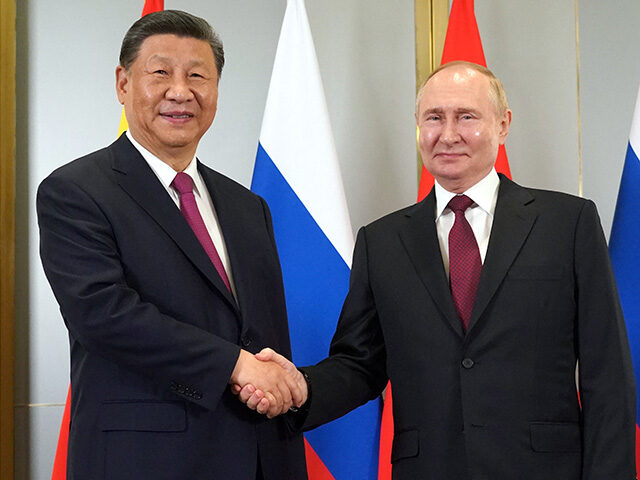Russian Deputy Foreign Minister Sergey Ryabkov on Wednesday urged China to take a leading role in mediation on the Ukraine war.
“We welcome the Brazil-China consensus – a well-known initiative consisting of six points,” Ryabkov said.
“I think this initiative has ever more support in the Global South. And this meeting of high representatives is the latest example of how the Global South and people who really want to consistently move toward a political settlement are finding good reasons to actively consider this idea,” he said.
“I will tell you that Russia has always expressed its readiness to resume negotiations,” he claimed.
The latter statement is flatly untrue, as Russia often refuses to engage in negotiations, but Russian officials always dismiss the proposals they do not like as unserious and treat them like they never happened.
The “Brazil-China consensus” is a joint statement released on May 23, 2024, after Chinese Foreign Minister Wang Yi met with Brazilian presidential adviser Celso Amorim. Chinese officials incessantly refer to the “six-point plan” but rarely bother to explain what the six points are.
The first point is a call for all parties in the Ukraine conflict to “de-escalate” by not expanding the battlefield, increasing the intensity of the fighting, or provoking the other side. Since Russia created the battlefield in the first place, and has “expanded” it without remorse at every opportunity, this point mostly translates to Russia complaining about effective Ukrainian counterattacks like the invasion of Kursk.
The second point states that “all sides believe that dialogue and negotiation are the only viable solution to the Ukraine crisis.” China and Brazil called for an international peace conference that would be equally recognized by both Moscow and Kyiv.
The third point calls for more humanitarian assistance to civilians affected by the conflict and encourages all parties to avoid civilian casualties. The fourth rules out nuclear, chemical, and biological weapons, while the fifth calls for all parties to avoid attacking nuclear power plants.
The sixth point is a vague call for more international cooperation on issues like energy and food security, relevant to Russia’s invasion of Ukraine only because it urges protection of “critical infrastructure, including oil and gas pipelines.” Oil and gas pipelines have been in peril throughout the Ukraine conflict.
The “Global South” is a broad reference to developing nations, which have developed a group consciousness around the idea that Western multilateral institutions like the G7, G20, and NATO do not take full account of their interests.
China and India have been competing for leadership of the Global South movement. The BRICS economic bloc, which counts China and India as founding members, has been expanding its membership and seeking to establish itself as a vehicle for Global South collective action.
The “Brazil-China consensus” has no real power or international credibility, but the Russians find it convenient to treat the statement as a significant peace initiative they would eagerly join, if only Ukraine and its Western partners would take it seriously. China is pleased to help Russia with this posturing, and it would very much like to be recognized as the leading mediator in the Ukraine crisis, permanently displacing the United States and the NATO countries as guarantors of global security.
The Chinese Foreign Ministry on Tuesday was delighted by Russia’s calls for Beijing to take the lead on Ukraine negotiations.
“We stand ready to continue working with the international community to accumulate conditions for the political settlement of the crisis and play a constructive role for peace,” said Chinese Foreign Ministry spokeswoman Mao Ning.
In addition to welcoming salutes to its mediation credibility from Ryabkov and Russian strongman Vladimir Putin, China’s state-run Global Times welcomed Italian Prime Minister Giorgia Meloni’s suggestion that China and India should work together to broker a solution to the conflict.
“Chinese Foreign Ministry has repeatedly stressed that China’s stance on the Ukraine issue is consistent and clear. China always believes that to end the hostilities as soon as possible and seek a political settlement is in the interest of all parties. China is of the view that dialogue and negotiation is the only viable way out of the Ukraine crisis,” the Global Times intoned.
These Chinese reports did not mention that Meloni talked about China and India having a “role to play in resolving the conflict” while expressing her full support for Ukraine.
“What must not happen is to think that the conflict can be resolved by abandoning Ukraine to its fate. The decision to support Kyiv is in line with Italy’s national interest and will never change,” Meloni said on Saturday after meeting with Ukrainian President Volodymyr Zelensky.

COMMENTS
Please let us know if you're having issues with commenting.